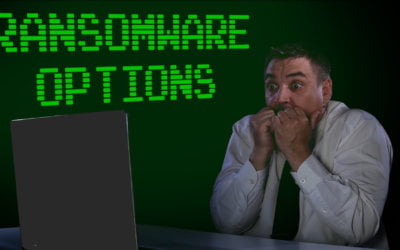You may think that cyberattacks only happen to large corporations. But unfortunately, that’s not the case.
According to a recent study, over two-thirds of small and medium-sized businesses (SMBs) experienced at least one cyber assault in the previous year. That is a startling figure that should serve as a wake-up signal to businesses everywhere.
But things get worse.
Repeat attacks are also becoming more common, with 87% reporting at least two successful attacks in the last year. On average, a company experiences about five successful cyber incidents.
Terrifying.
Why are these attacks taking place, and what can be done to avoid them?
Malware and ransomware are the most typical sorts of cyberattacks that businesses encounter.
Malware is malicious software. It invades your system and can cause all sorts of problems, from slowing down your operations to stealing your data.
Ransomware is even more dangerous as it encrypts your data, making it impossible for you to access it unless you pay a ransom fee. This can be devastating for any business and can lead to significant losses and downtime.
What factors are contributing to more successful attacks?
One reason is the rise in BYOD (Bring Your Own Device). This means employees using their personal devices to access company information, which can be risky.
Another factor is the explosion of productivity apps, which can create security vulnerabilities if not properly secured.
Finally, the increased number of devices we use means that cyber criminals have additional access points to exploit.
The good news is that you can take precautions to protect your company. Here are five solid security measures you can implement.
And if that appears to be a lot of extra work, let us assist you. Contact us right away.
- Use strong passwords: Passwords are your first line of defence, so make sure they’re strong and unique. Better yet, use a password manager that can create and remember randomly generated passwords
- Keep software up to date: Software updates often contain security fixes, so make sure you’re always running the latest version. This applies to both your operating system and all applications you use
- Train your staff: Educate your employees on how to identify phishing emails and other scams. You can also run regular security awareness training sessions to keep everyone up to date
- Backup your data: Doing this means if you do suffer a cyber attack, you can restore your systems quickly and with less disruption
- Use antivirus software: This can help protect your systems from malware and other threats. Make sure you’re running a reputable and up-to-date solution
Remember, prevention is always better than cure. Take action today to help you stay protected.
And if that seems like a lot of extra work, let us help. Get in touch today.




